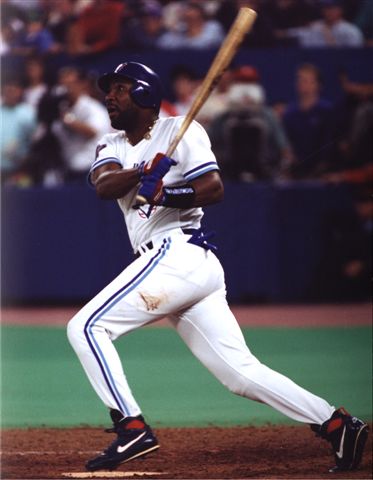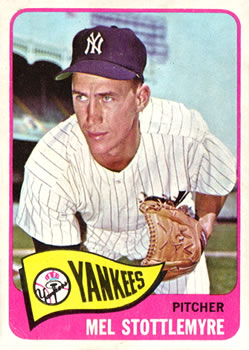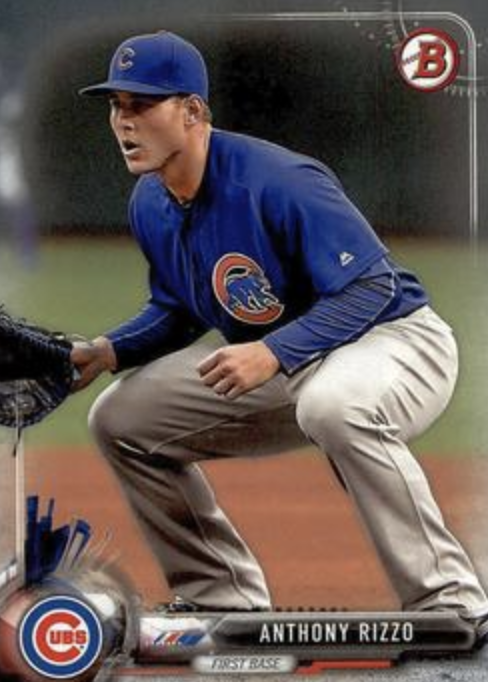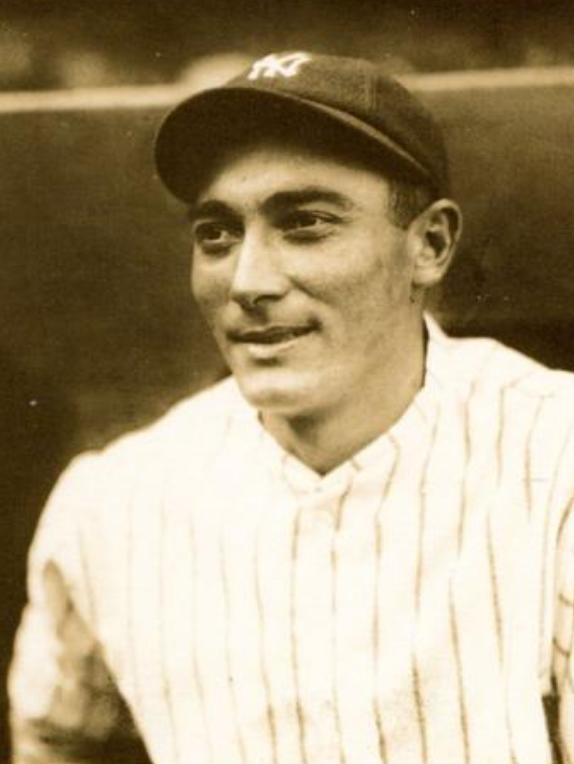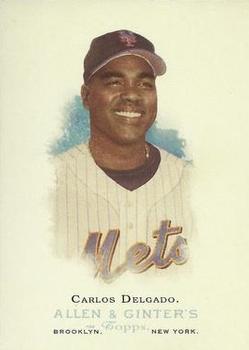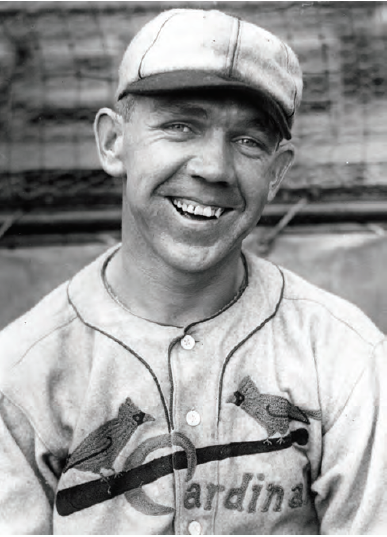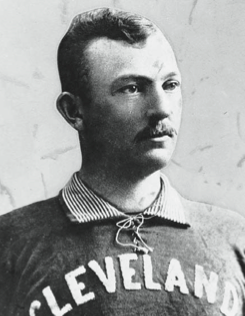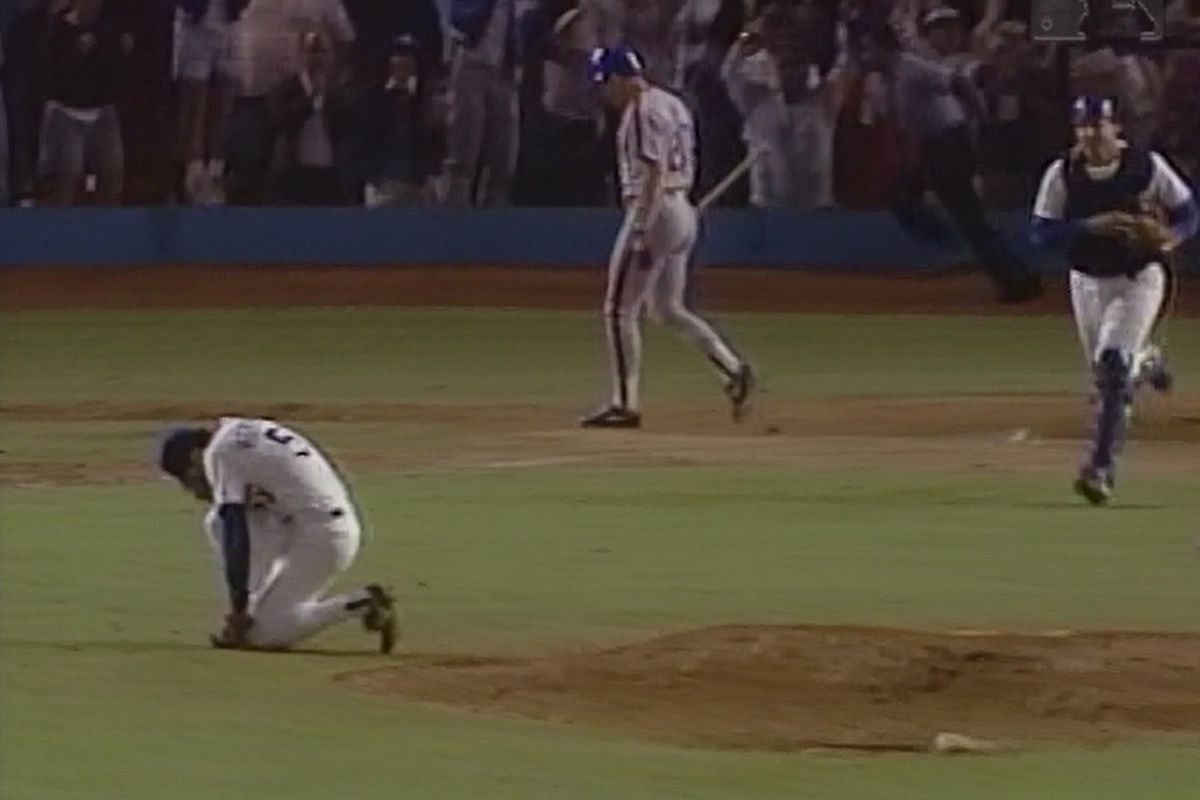October 10, 1982: Milwaukee Brewers rally in Game Five to reach World Series
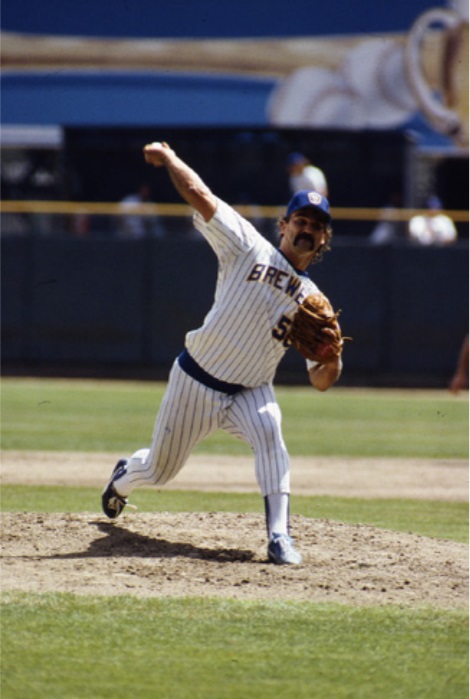 Game Five of the 1982 American League Championship Series on Sunday, October 10, 1982, was the most important contest fans at Milwaukee County Stadium had been treated to since its former occupants, the Braves, fell to the New York Yankees, 6-2, in Game Seven of the 1958 World Series. While the Brewers had made the postseason for the first time in strike-shortened 1981 after winning the second-half AL East Division title, they had been eliminated in the first round. This time around, the Brewers aimed to earn the franchise’s first trip to the World Series in front of 54,968 rabid hometown fans.
Game Five of the 1982 American League Championship Series on Sunday, October 10, 1982, was the most important contest fans at Milwaukee County Stadium had been treated to since its former occupants, the Braves, fell to the New York Yankees, 6-2, in Game Seven of the 1958 World Series. While the Brewers had made the postseason for the first time in strike-shortened 1981 after winning the second-half AL East Division title, they had been eliminated in the first round. This time around, the Brewers aimed to earn the franchise’s first trip to the World Series in front of 54,968 rabid hometown fans.
The first four games in the best-of-five ALCS against the California Angels had brought a feeling of déjà vu. The previous year, the New York Yankees had taken a commanding series lead by winning the first two games in Milwaukee only to have the Brewers return the favor by winning Games Three and Four in New York. Three consecutive victories at Yankee Stadium had been too tall an order, however, and the Yankees had vanquished the Brew Crew in Game Five.
Against California, Milwaukee again faced a 2-0 deficit as the Angels won both games in Anaheim. Experience kept the team from panicking, though, as manager Harvey Kuenn tried to explain after Game Two: “We’ve had the walls behind our backs before. I mean, you’d have to say our backs are behind the wall.”1 With their backs against the wall, the Brewers stormed back to tie the series and, though no team in 13 years of ALCS history had overcome a 2-0 deficit to win, they were confident that this year would be different.
Pete Vuckovich, the eventual 1982 AL Cy Young Award winner, faced a rematch against Bruce Kison, who had outdueled him in the Angels’ 4-2 victory in Game Two. Vuckovich’s shot at redemption got off to an inauspicious start as leadoff batter Brian Downing stroked his fourth pitch to right field for a double. After Rod Carew flied out, third baseman Paul Molitor made a diving catch of Reggie Jackson’s liner, but his wild throw to second hit Downing in the back, allowing him to advance to third. Hot-hitting Fred Lynn drove in Downing with a single that gave the Angels a quick 1-0 lead, with Lynn advancing to second as left fielder Ben Oglivie committed the Brewers’ second error of the inning. Vuckovich limited the damage by retiring Don Baylor (10 RBIs in the first four games) on a grounder for the final out.
In the bottom of the first, a chorus of “Anything You Can Do” would have been appropriate for the two teams, although the number of errors committed in the inning demonstrated that things were not always being done better. First, Molitor matched Downing’s feat when he led off with a double of his own, after which he advanced to third on a Robin Yount groundout. Next, Cecil Cooper reached base safely when Angels third baseman Doug DeCinces joined the parade of errors with a poor throw to first. And finally, a Ted Simmons sacrifice fly scored Molitor to tie the game.
The Angels recaptured the lead in the third when Lynn singled again, scoring Boone and putting California back up, 2-1. Oglivie appeared moonstruck by Lynn’s hits on this day as he misplayed the ball for his second error of the game, allowing Lynn to advance to second. But in another instance of déjà vu, Vuckovich escaped further trouble by inducing a Baylor pop fly to get out of the inning.
Boone extended the Angels’ lead to 3-1 with an RBI single that scored DeCinces in the top of the fourth, but Oglivie got that run back with a solo home run off Kison in the bottom of the frame. Oglivie’s homer was his only offensive contribution to the ALCS and was one of the few times that “Harvey’s Wallbangers” had made an appearance. The team’s nickname was an affectionate reference to both Harvey Kuenn, who had taken over as manager in the season’s 48th game, as well as to the .279 team batting average and 216 home runs they had amassed in the regular season. The ALCS, however, was a different story as the Brewers struggled with the bats, finishing with a meager .219 team batting average. As Game Five progressed, with their hitters continuing to struggle and the Angels clinging to a 3-2 lead, time appeared to be running out on Milwaukee’s season.
A key play in the top of the fifth kept the Brewers’ hopes alive as right fielder Charlie Moore gunned down Reggie Jackson, who was attempting to advance from first to third on yet another Lynn single. Lest anyone underestimate the significance of Moore’s outfield assist, Vuckovich later affirmed, “ ‘Munchkin’ throwing out Reggie was really important. If he doesn’t make that play, only God knows how many runs they would have scored.”2
In the bottom of the seventh, the stage was set for Cooper — who next to Oglivie was the “Wallbanger” in the worst slump — to become one of the heroes of the series. Cooper had registered a .313-32-121 batting line with 205 hits in the regular season but had entered Game Five at .125-0-2. Now Angels reliever Luis Sanchez, who had replaced Kison in the bottom of the sixth inning, found himself facing Cooper in a two-out, bases-loaded situation. After the game, Cooper acknowledged, “If somebody asked where Cecil Cooper had been during the playoffs, it would have been a fair question.”3 As it turned out, Cooper was in the right place at the right time in Game Five as he slapped a single to left field that scored Moore and Jim Gantner for a 4-3 Brewers lead. After Gantner dove across home plate with what turned out to be the winning run, he found himself in Moore’s joyous embrace. “All I remember is I went down on my knees. I grabbed him and hugged him,” Moore recalled.4
The game was not yet over, though, and center fielder Marshall Edwards, who had replaced a hobbled Gorman Thomas in the top of the seventh, turned in the Brewers’ second defensive gem with a leaping catch at the wall in the eighth inning that robbed Baylor of a hit. ABC television announcer Keith Jackson exclaimed, “If Gorman Thomas is in center field, that’s off the wall for extra bases!”5
Edwards’s catch stunted any potential Angels rally, and after that bit of excitement, the Brewers took care of business. Bob McClure, who had entered the game in the seventh, earned the win, while Pete Ladd registered his second save of the series by retiring the side in the ninth following a Jackson single off McClure. As soon as Yount threw out Carew at first for the final out, fans streamed onto the field to initiate a celebration that spread through the entire city of Milwaukee, “show[ing] that, even with a gap of a quarter-century, it had not forgotten how to celebrate a baseball pennant.”6
After the game, Fred Lynn, who had batted .611 with 11 hits and 5 RBIs, was named the series MVP, a rare honor for a player on the losing team and one that riled Kuenn, who said, “Fred Lynn got the MVP? Not in my book. It should have gone to Ladd.”7 Ladd, who had retired all 10 batters he faced in the series, conceded, “Freddie deserved the MVP. But what we got is a chance to go to the World Series. And we deserved that.”8
Ladd was right. Nothing, including an MVP snub, could overshadow the Milwaukee Brewers’ accomplishments: They had earned their first trip to the World Series after becoming the first team to overcome a 2-0 deficit in an ALCS that also was the first such series to be played between two of the major leagues’ 1960s expansion teams. Brewers owner Bud Selig praised his team’s effort and declared, “You gotta love ’em. I love ’em like my own family.”9 Indeed, fans throughout Wisconsin and much of the rest of the nation did love “Harvey’s Wallbangers,” the 1982 American League Champion Milwaukee Brewers.
This article appears in “From the Braves to the Brewers: Great Games and Exciting History at Milwaukee’s County Stadium” (SABR, 2016), edited by Gregory H. Wolf. To read more stories from this book at the SABR Games Project, click here.
Sources
Baseball-Reference.com.
Essential Games of the Milwaukee Brewers.
Milwaukee Journal.
Milwaukee Sentinel.
The Sporting News.
Notes
1 Dave Nightingale, “Second-Liners Rally Brewers,” The Sporting News, October 18, 1982, 24, 26.
2 Vic Feuerherd, “Brewers win first AL title,” Milwaukee Sentinel, October 11, 1982.
3 Dave Nightingale, “Demons Return to Haunt Mauch,” The Sporting News, October 18, 1982, 26.
4 Tom Flaherty, “Yes! Yes! A pennant!” Milwaukee Journal, October 11, 1982.
5 Essential Games of the Milwaukee Brewers, “1982 ALCS Game 5 Pennant Clincher” (A&E Home Video, 2012), DVD.
6 “Go Brewers Go!” Milwaukee Sentinel, October 11, 1982.
7 “Second-Liners Rally Brewers.”
8 Ibid.
9 Joe Karius, “Selig’s longest day ends in victory celebration,” Milwaukee Sentinel, October 11, 1982.
Additional Stats
Milwaukee Brewers 4
California Angels 3
Game 5, ALCS
County Stadium
Milwaukee, WI
Box Score + PBP:
Corrections? Additions?
If you can help us improve this game story, contact us.


